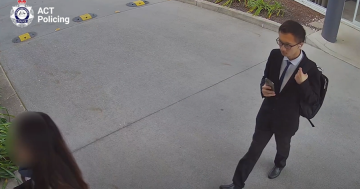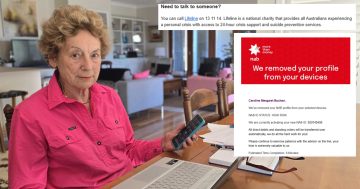
While talking about dating can either tickle the funny bone or hit a raw nerve on some, when it comes to taking your pursuits online keeping yourself protected is a serious business!
According to the ACCC, in 2013 more than $25 million was lost to online romance scams – in Australia! While you’d think in this fast pace tech savvy world we’d become a bit smarter about how to protect ourselves, $25 million is certainly nothing to scoff at.
The ACCC will be writing to over 800 people each month, identifying them by where they are sending money and how it’s being transferred. They will start their focus on NSW and the ACT.
While I don’t think I’ve come across a scammer online before, well at least no one has asked me to send money, I can imagine there are some very vulnerable people out there willing to send money to someone they think loves them.
The sad fact is, that scammers seem to know how to easily target the vulnerable, and online dating would be a prime place to find them.
Earlier this year SBS Insight aired interviews with victims of online scams and not surprisingly, there seemed to be a trend that all were over the age of 45, with one victim losing up to $360,000.
Yes, most scam stories have a sad ending. However in April this year it was reported that a Perth woman managed to recover close to $100,000 from an online romance scam after a police investigation.
As soon as she realized she had been scammed, the Perth woman put a recall on the funds and stayed in contact with the overseas bank maintaining it was fraud. Of the three payments she sent she got two of them back, a small win for the victim!
You would assume that most people have the common sense not to send money to someone they don’t know. What if that person had spent months talking to you, emailing, calling, and planning a future with you? How could you say no to someone who had convinced you they just loved and cared about you.
While it’s easy to judge people over the decisions they’ve made, it’s also important to remember that people have feelings and unfortunately scammers have made careers over using people’s feelings against them.
Warning signs of relationship scams (taken from the ACCC)
You might be dealing with a scammer if:
- you’ve never met or seen them: scammers will say anything to avoid a ‘face-to-face’ meeting, whether it be in person or over the internet via a video chat (e.g. their camera isn’t working)
- they’re not who they appear to be: scammers steal photos and profiles from real people to create an appealing façade – always run a Google Image Searchto help determine if they are a scammer
- you don’t know a lot about them: scammers are keen to get to know you as much as possible, but are often less forthcoming about themselves
- they ask you for money: once the connection’s been made – be it as a friend, admirer, or business partner – scammers will eventually ask you to transfer money – often waiting weeks, months or even years before doing so
- they ask to chat with you privately: many online dating sites have systems in place to detect scammers so scammers will try and move the conversation away from the scrutiny of community platforms to a one-on-one interaction such as email or phone.





















